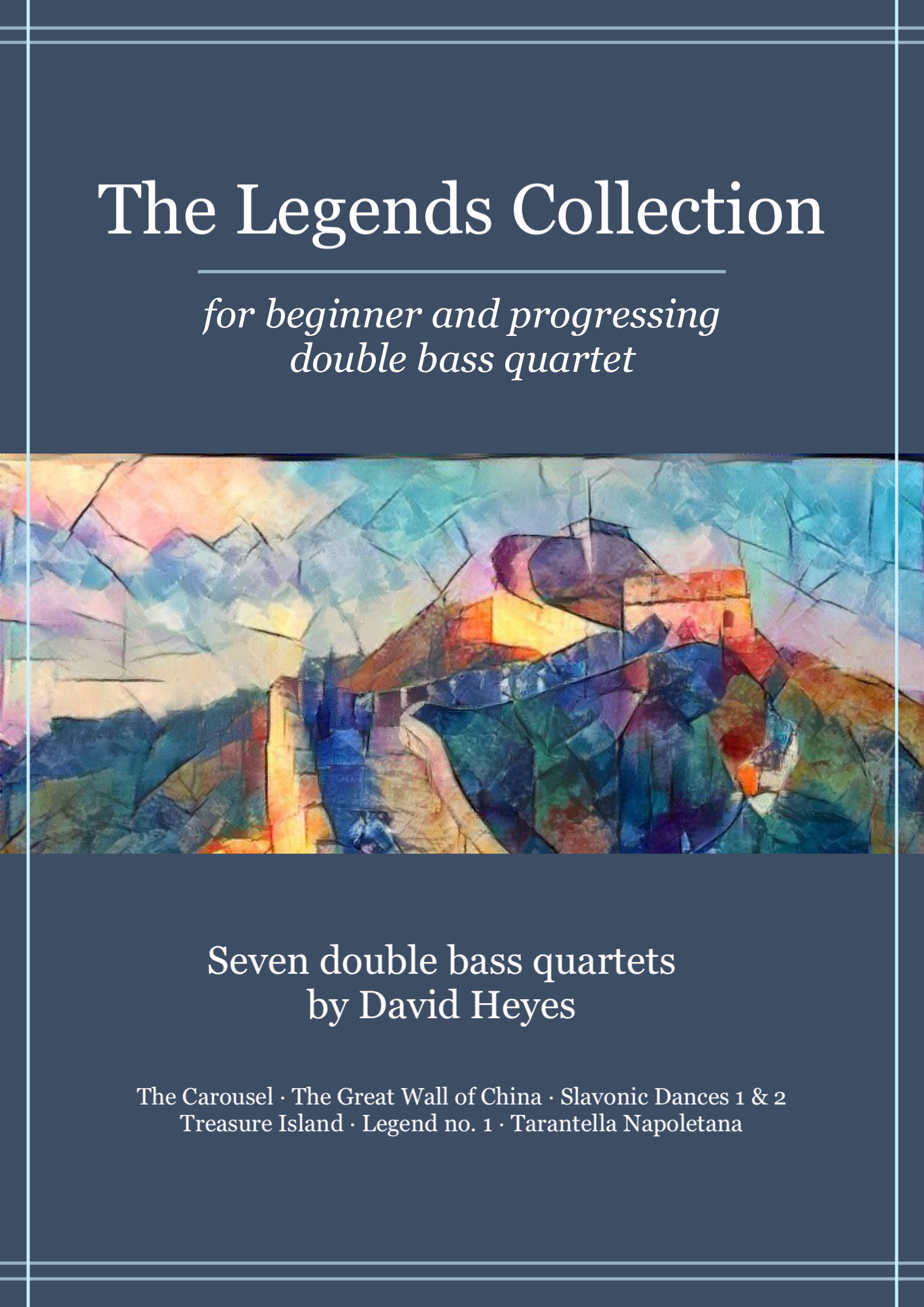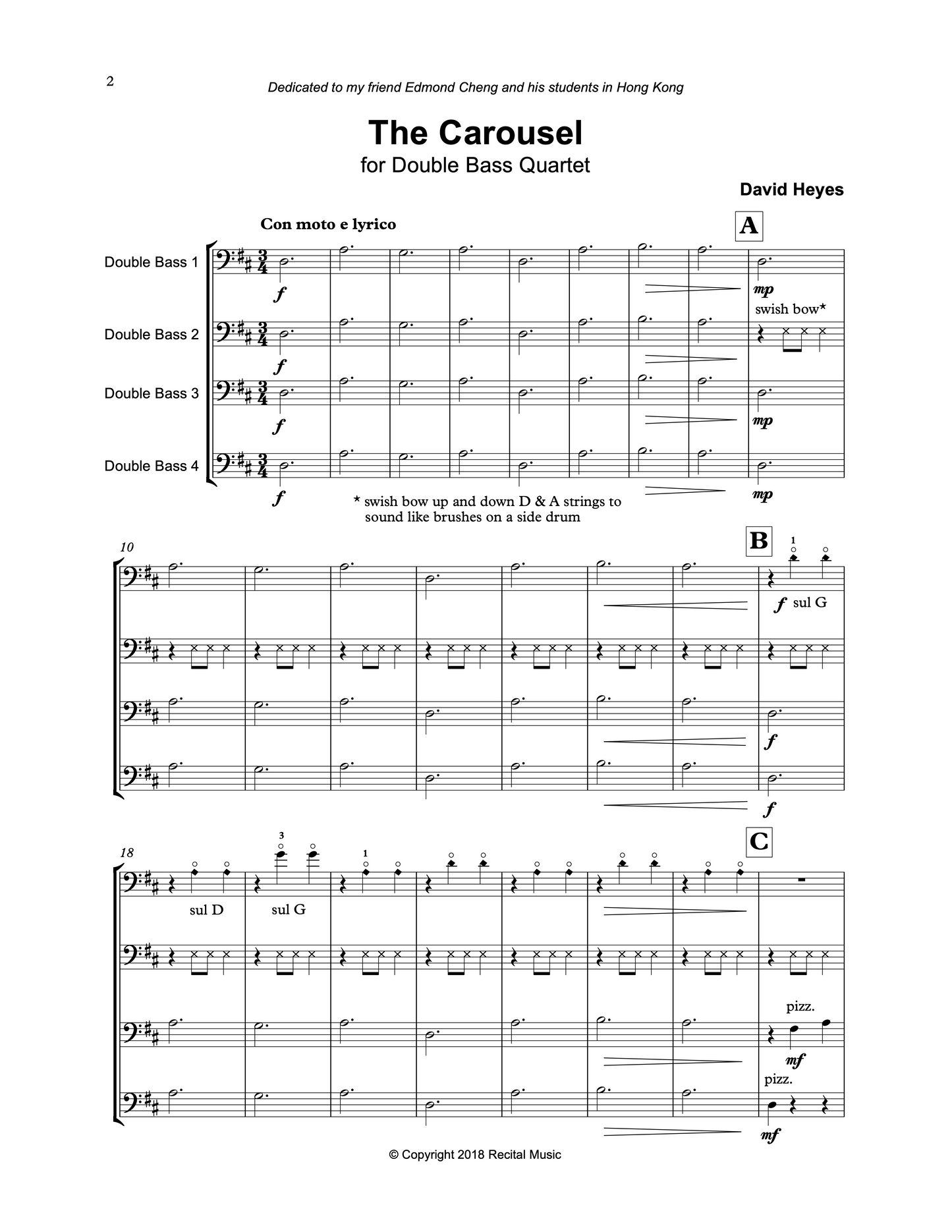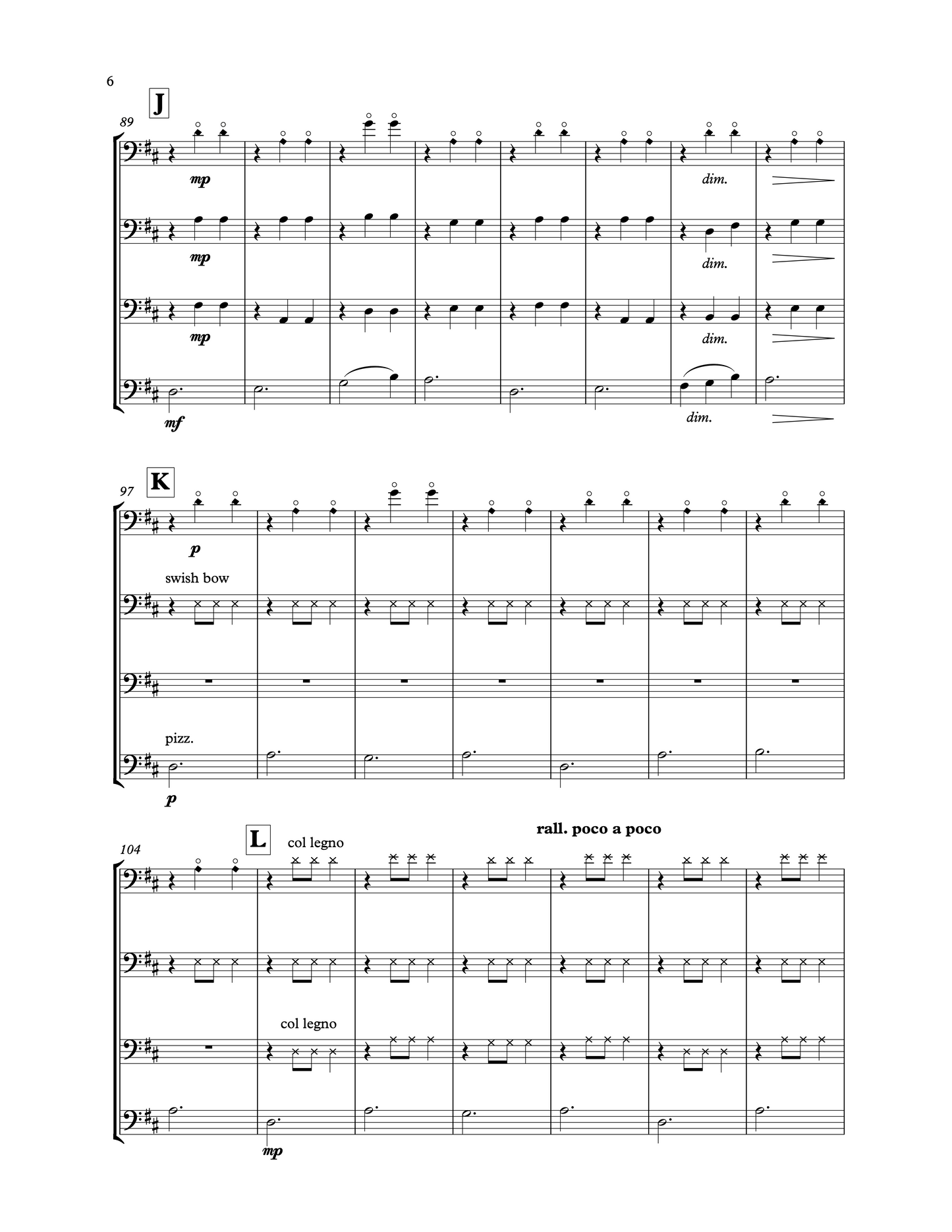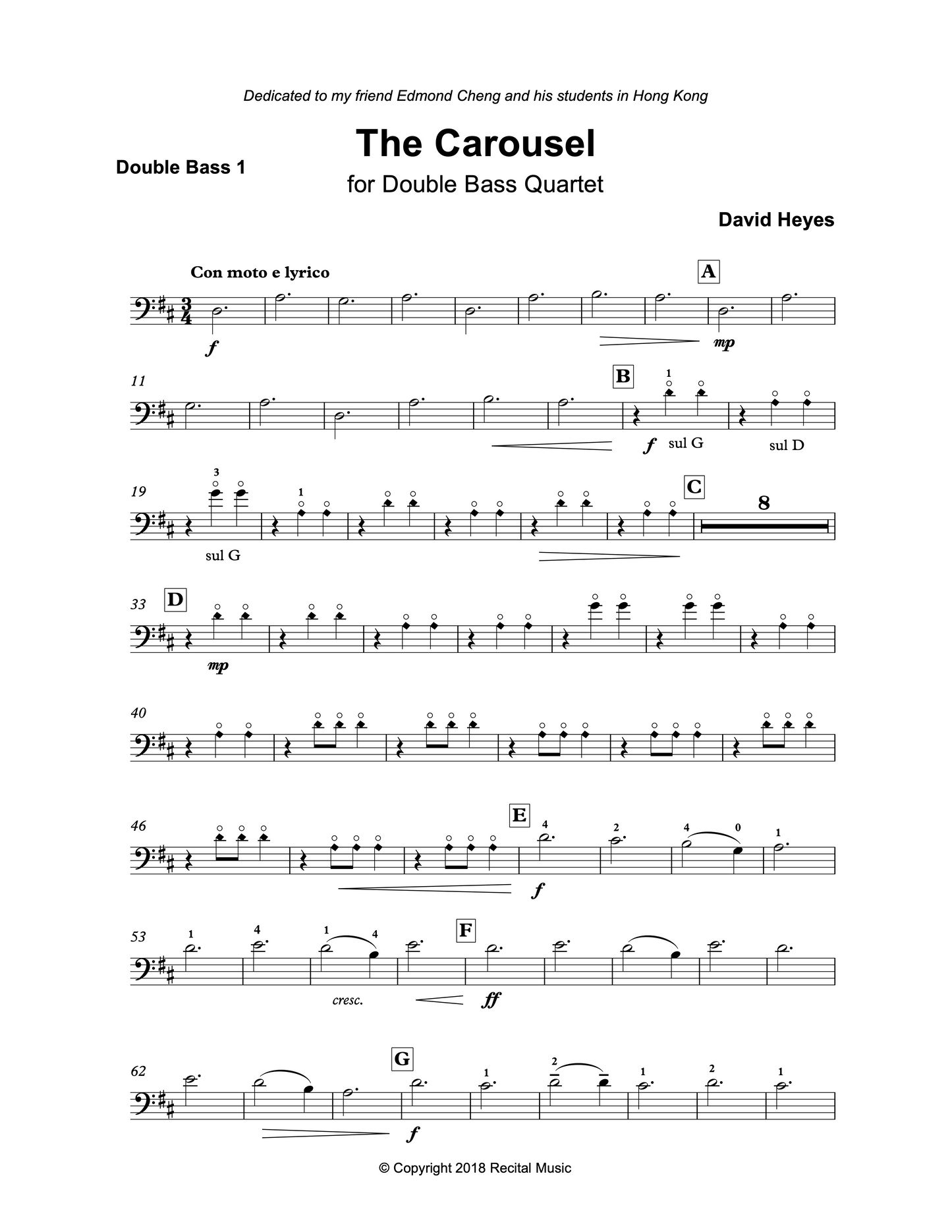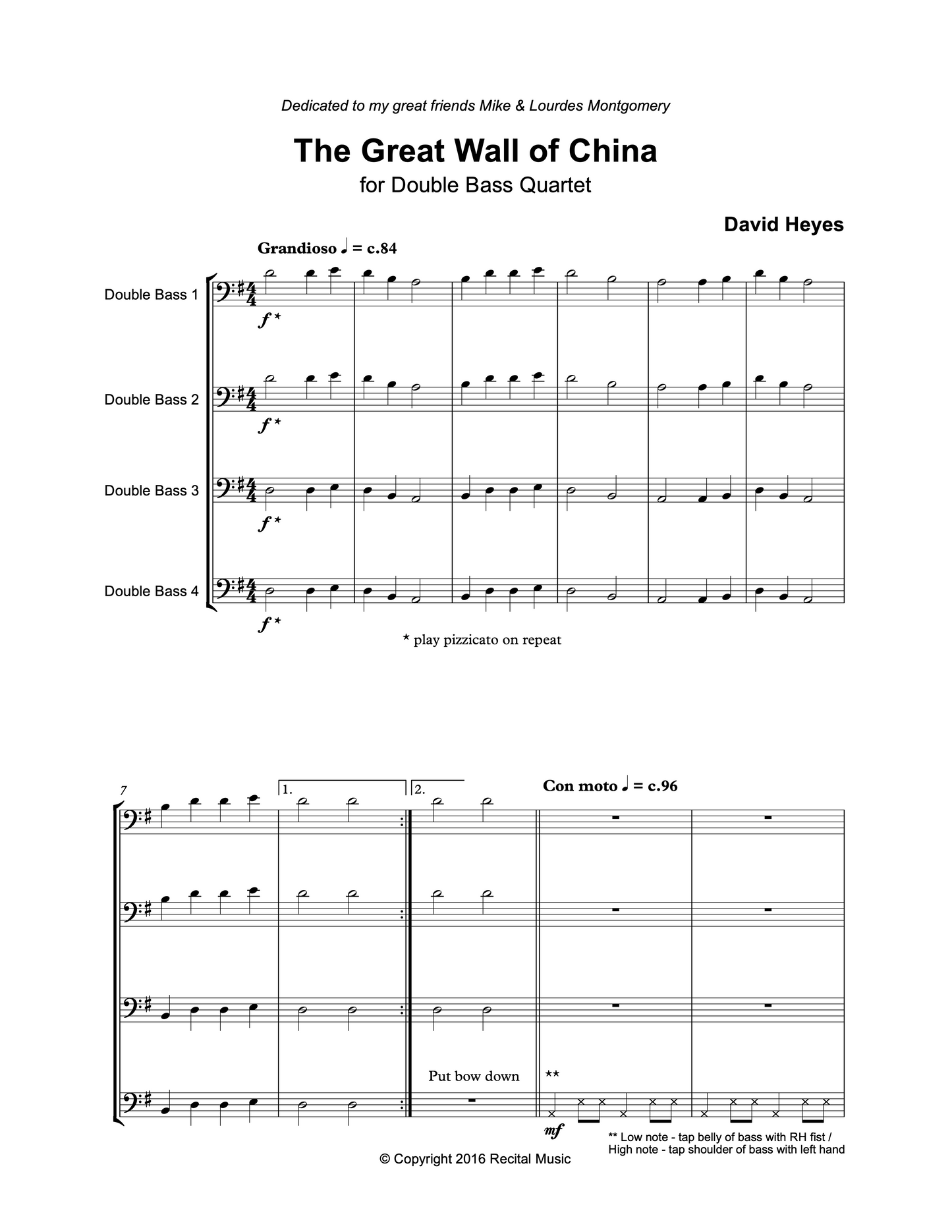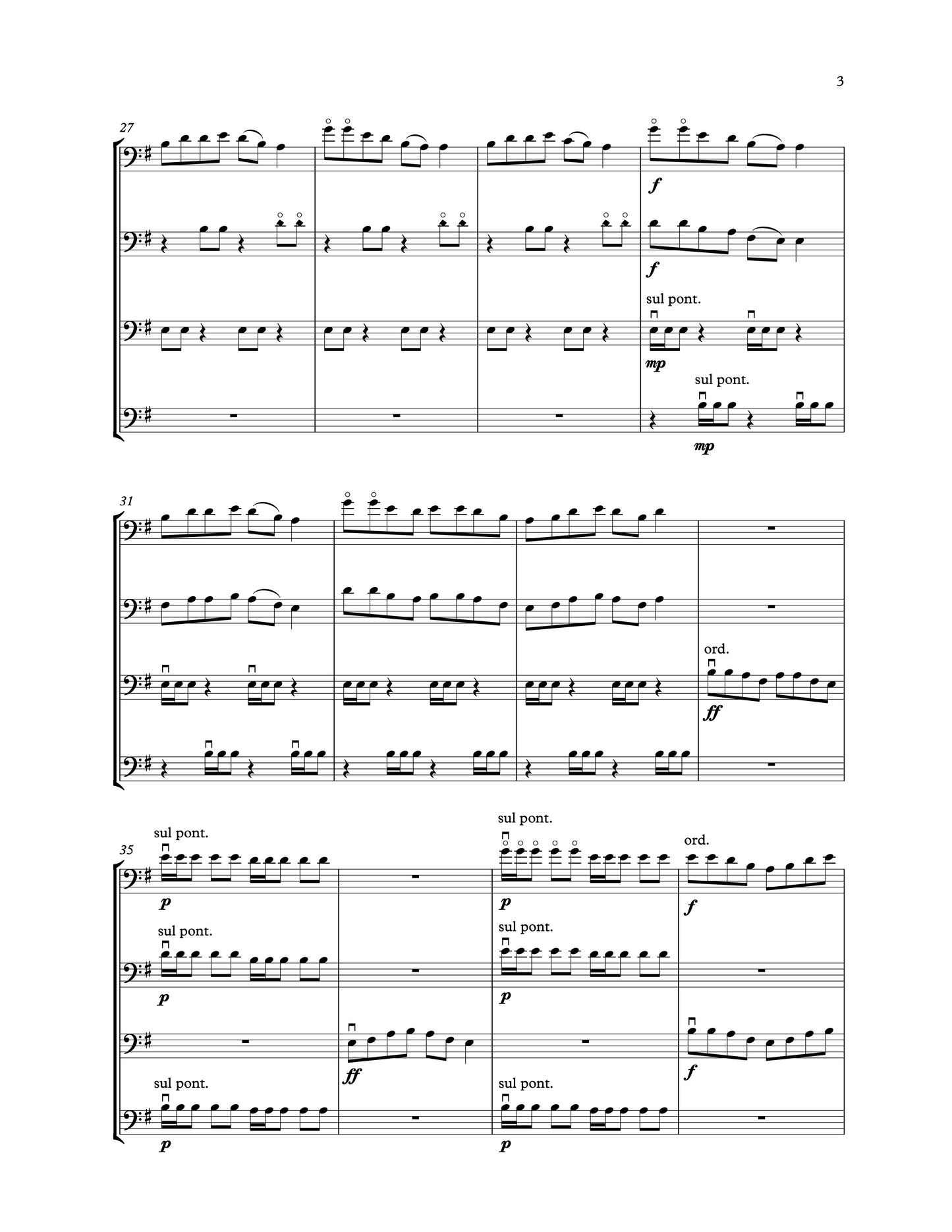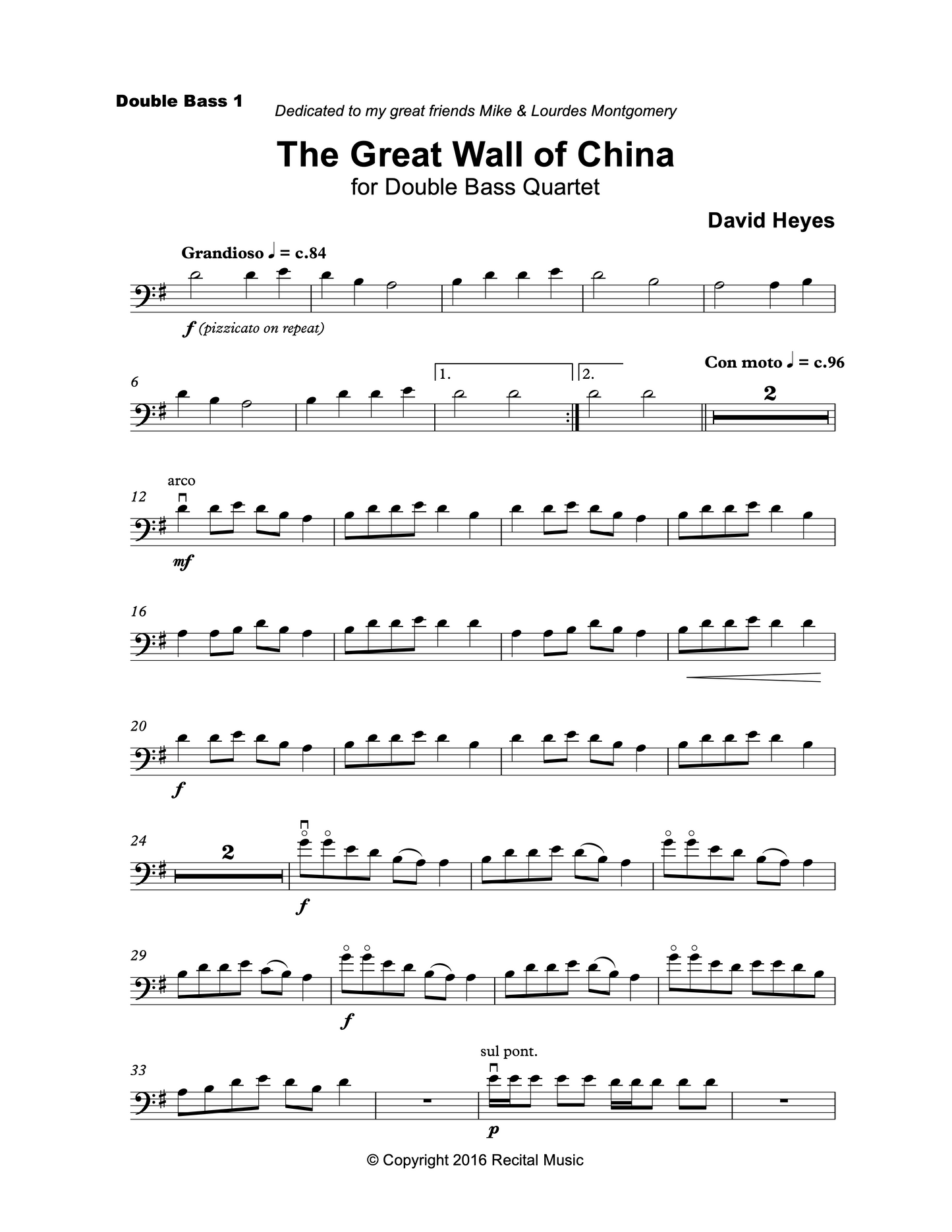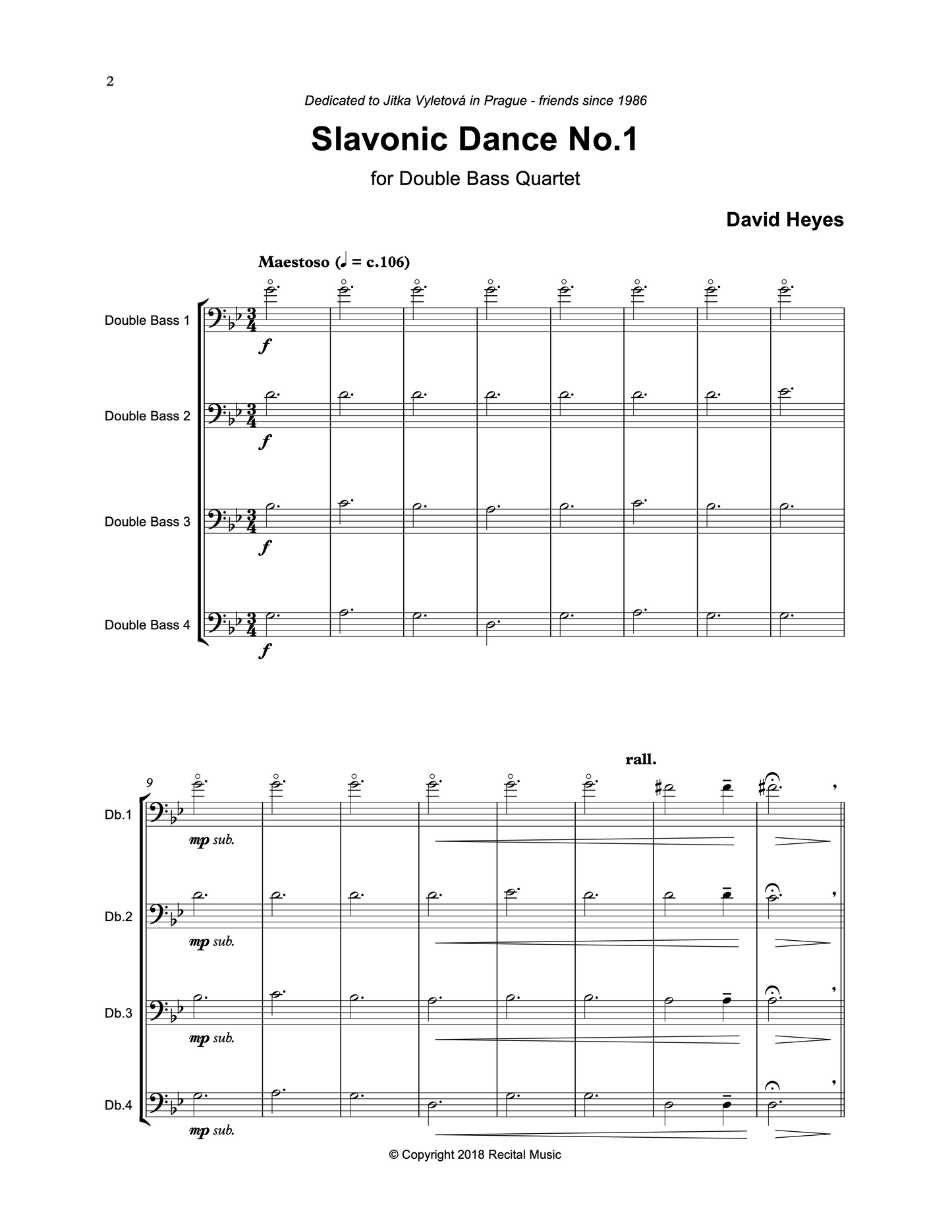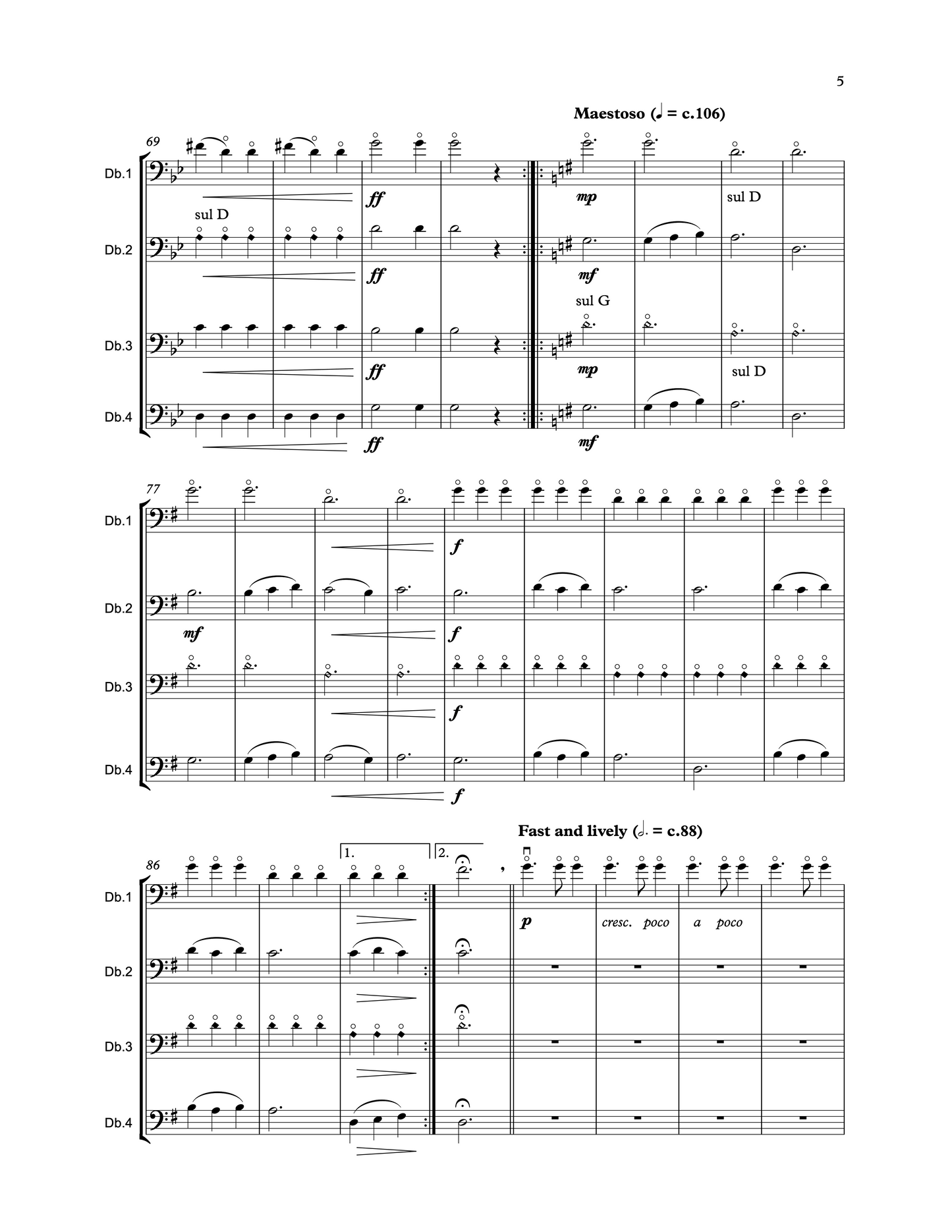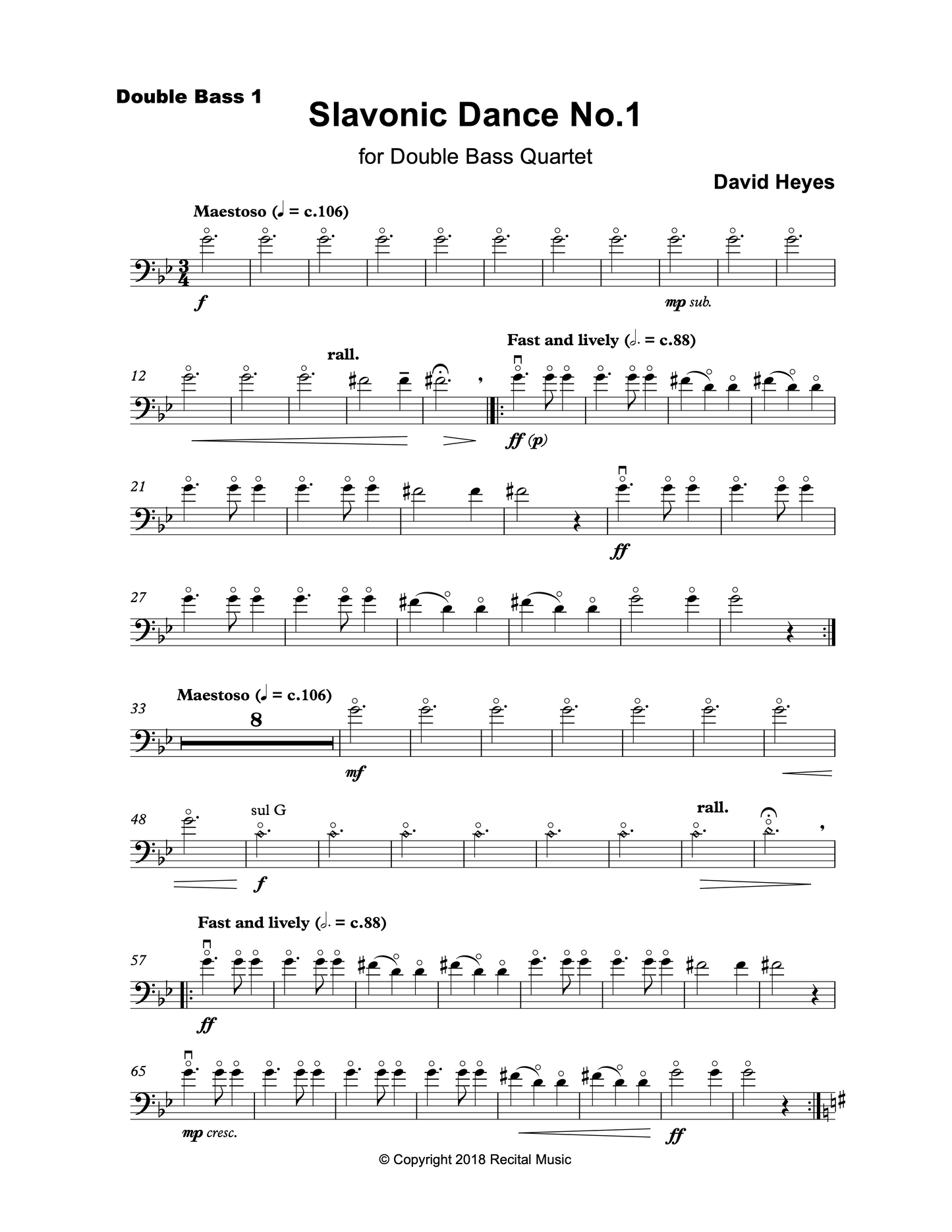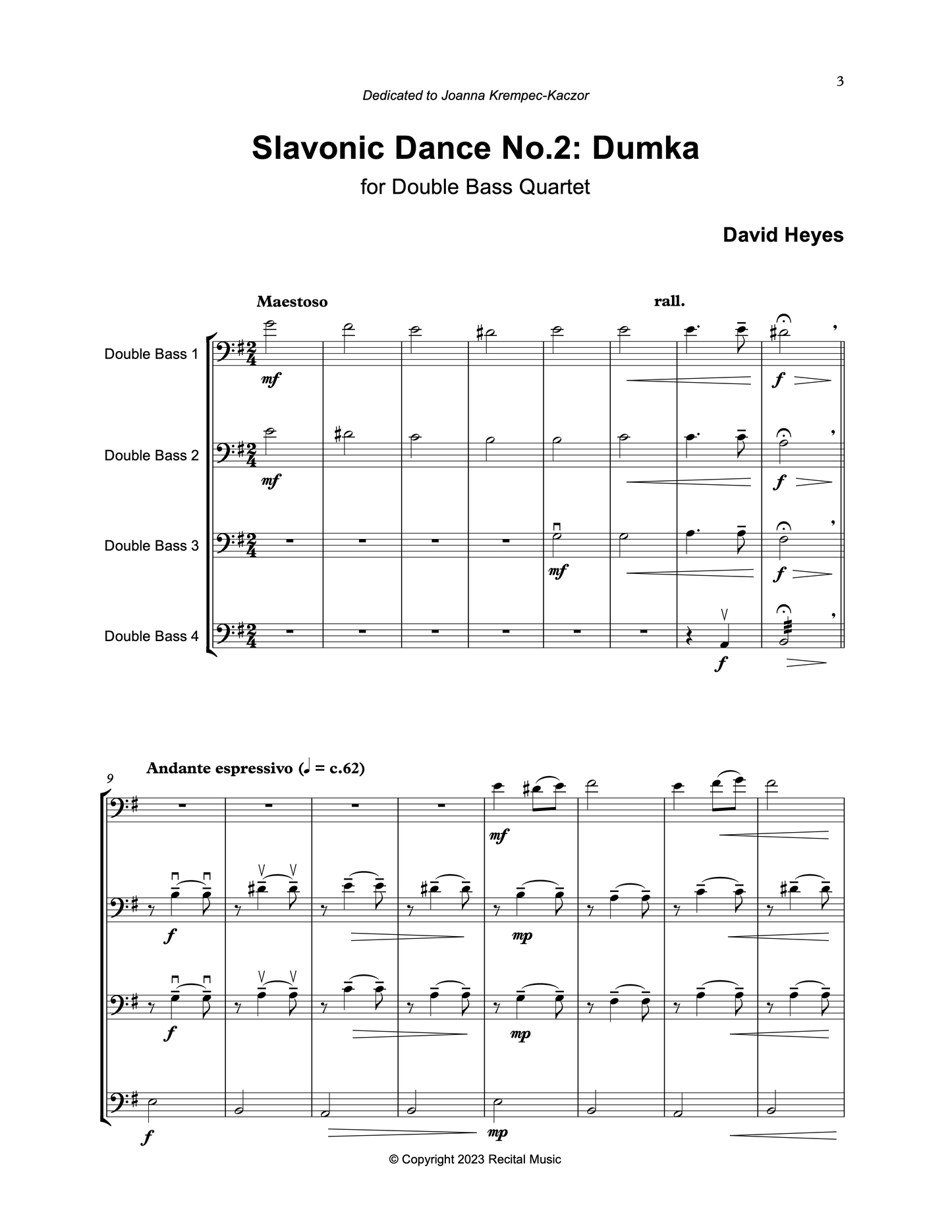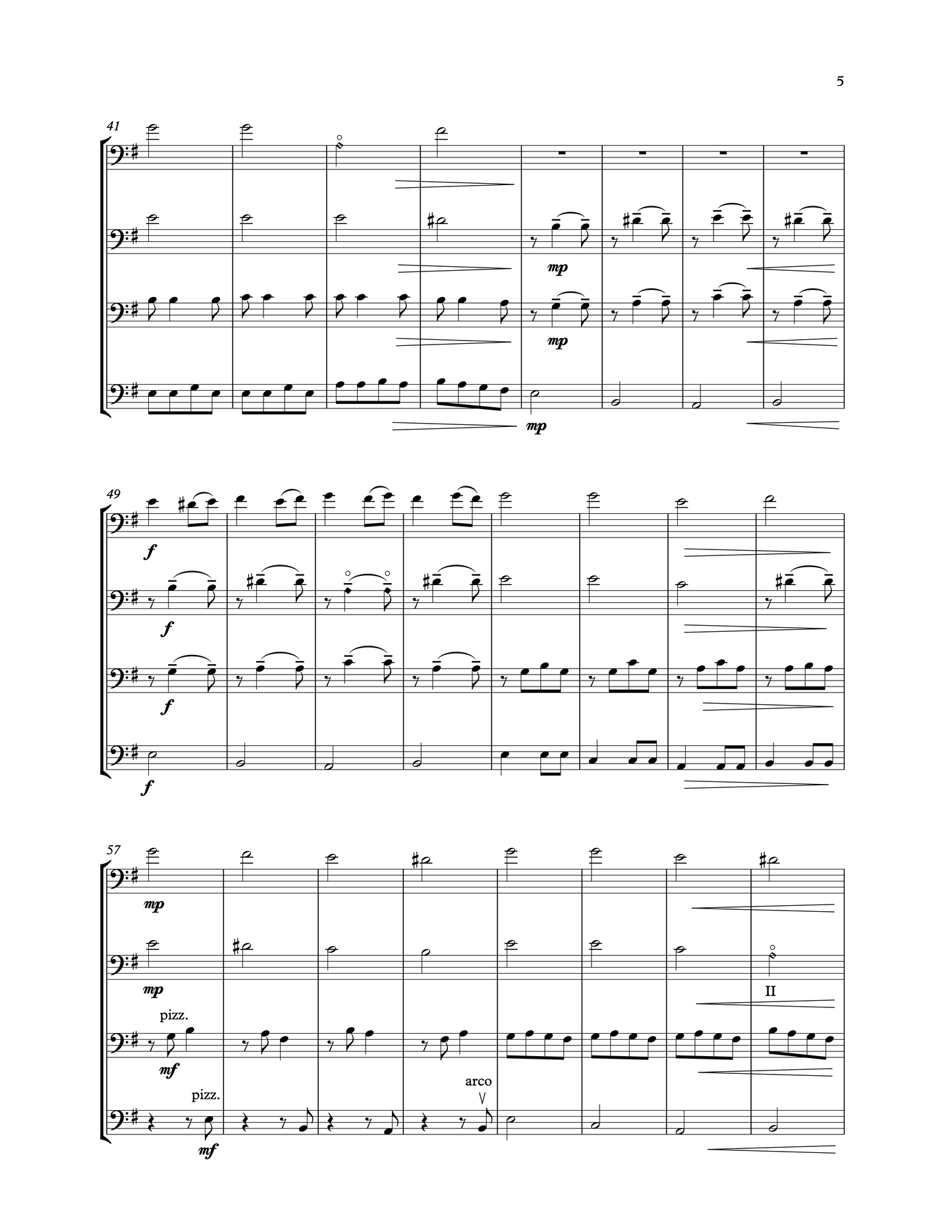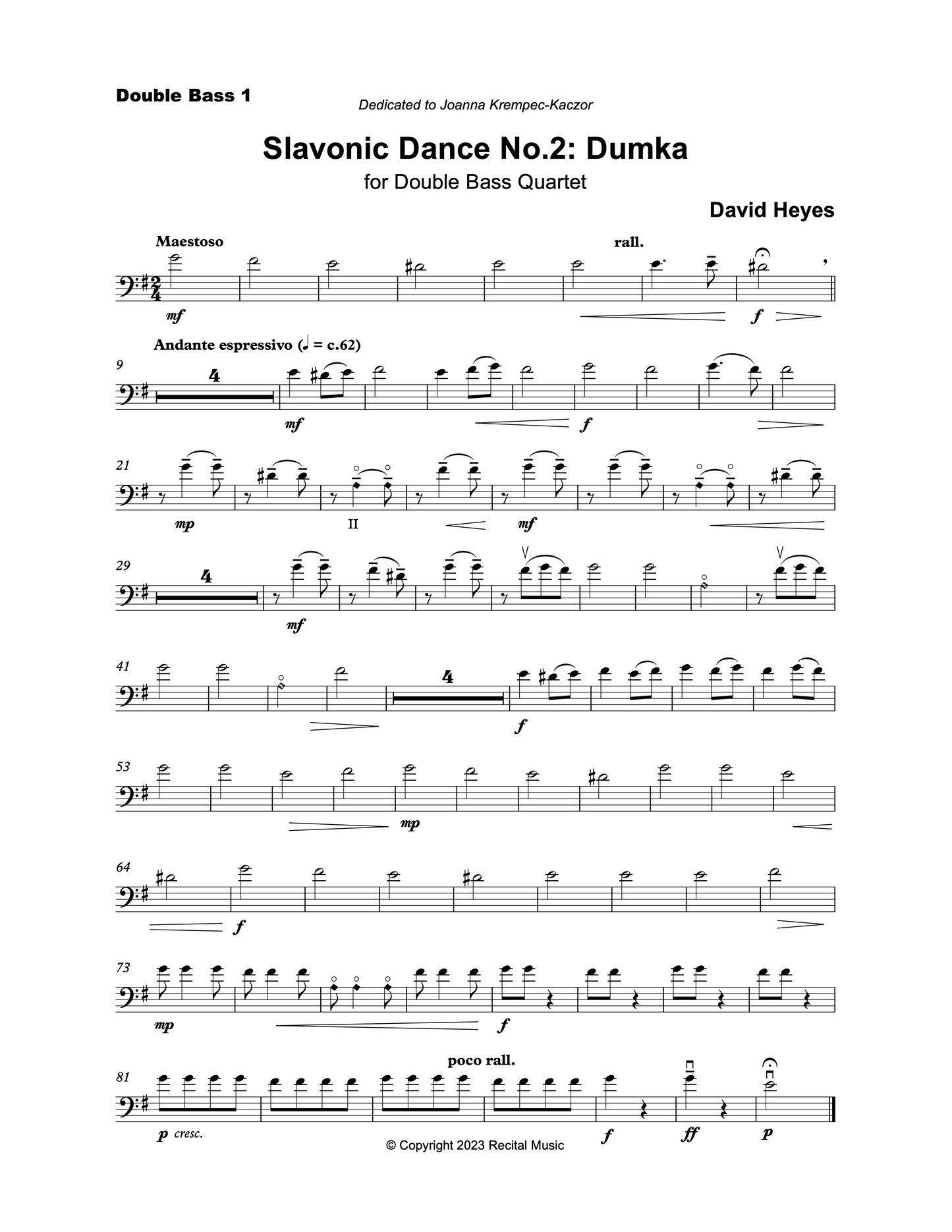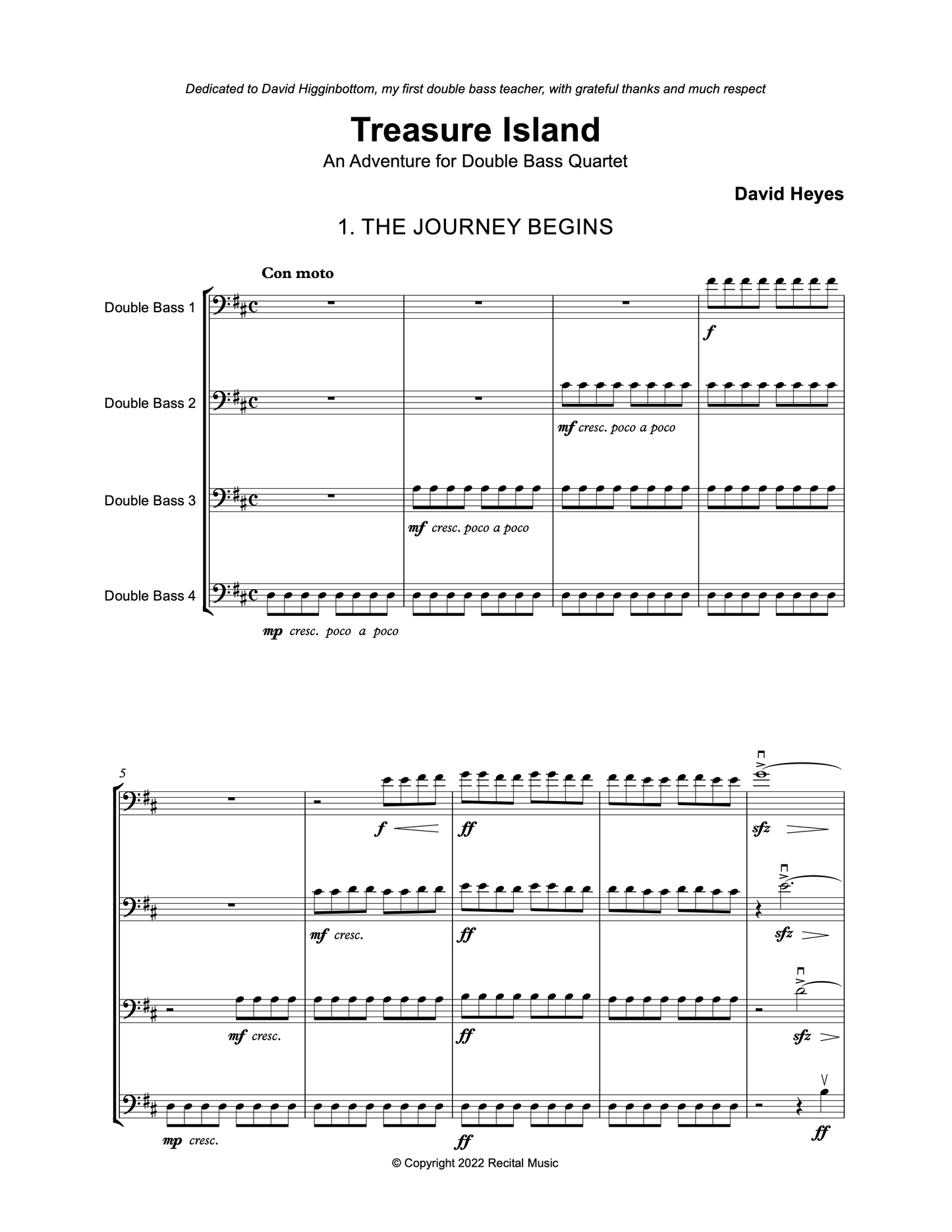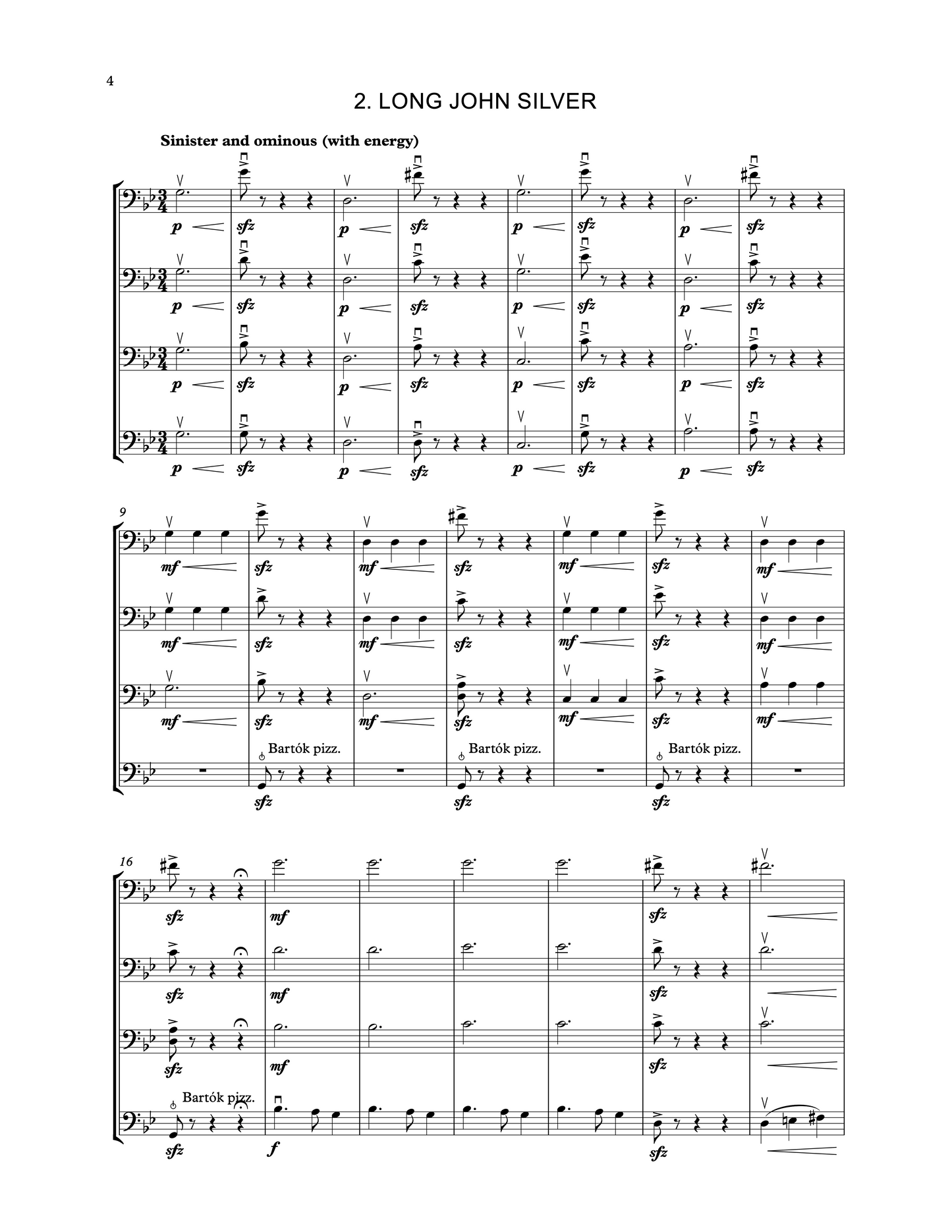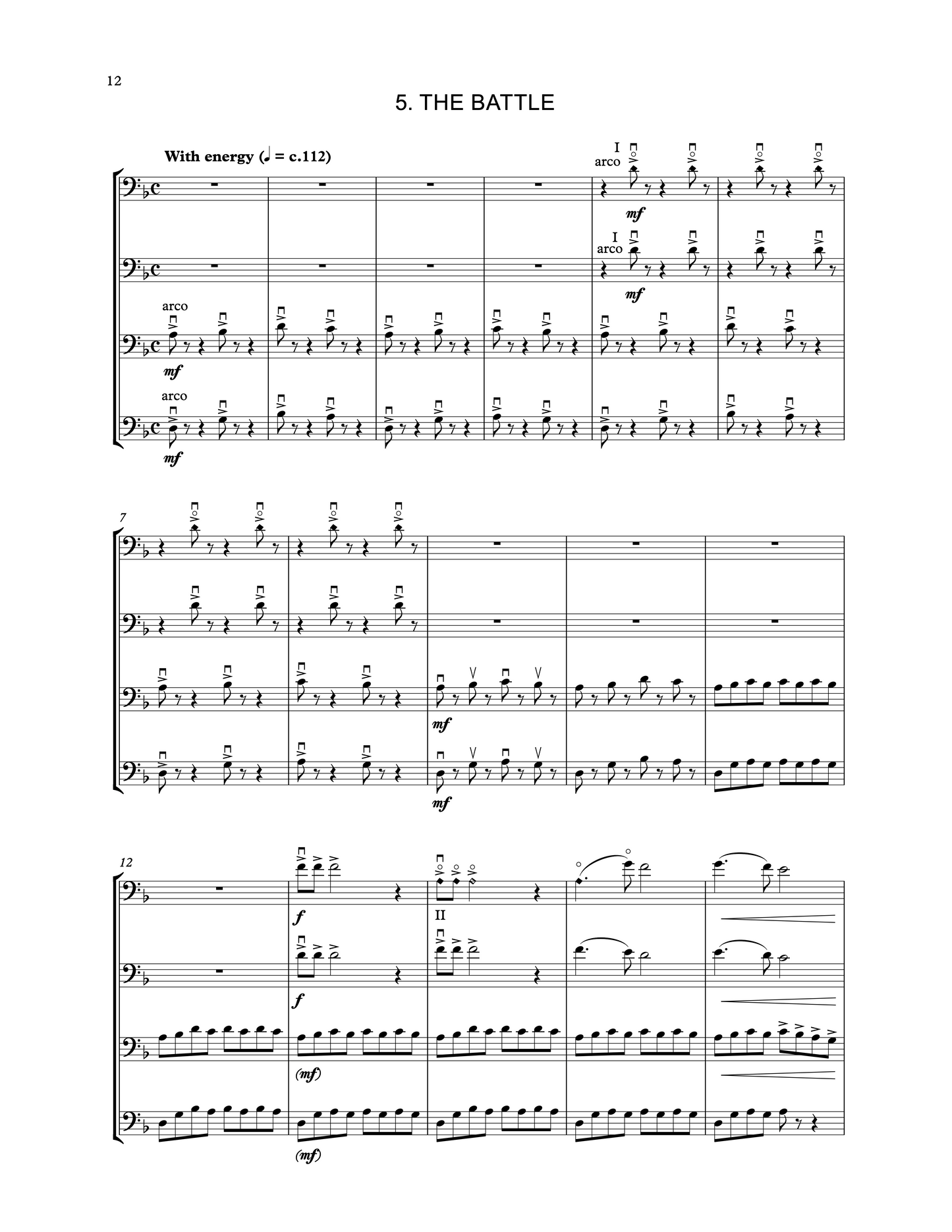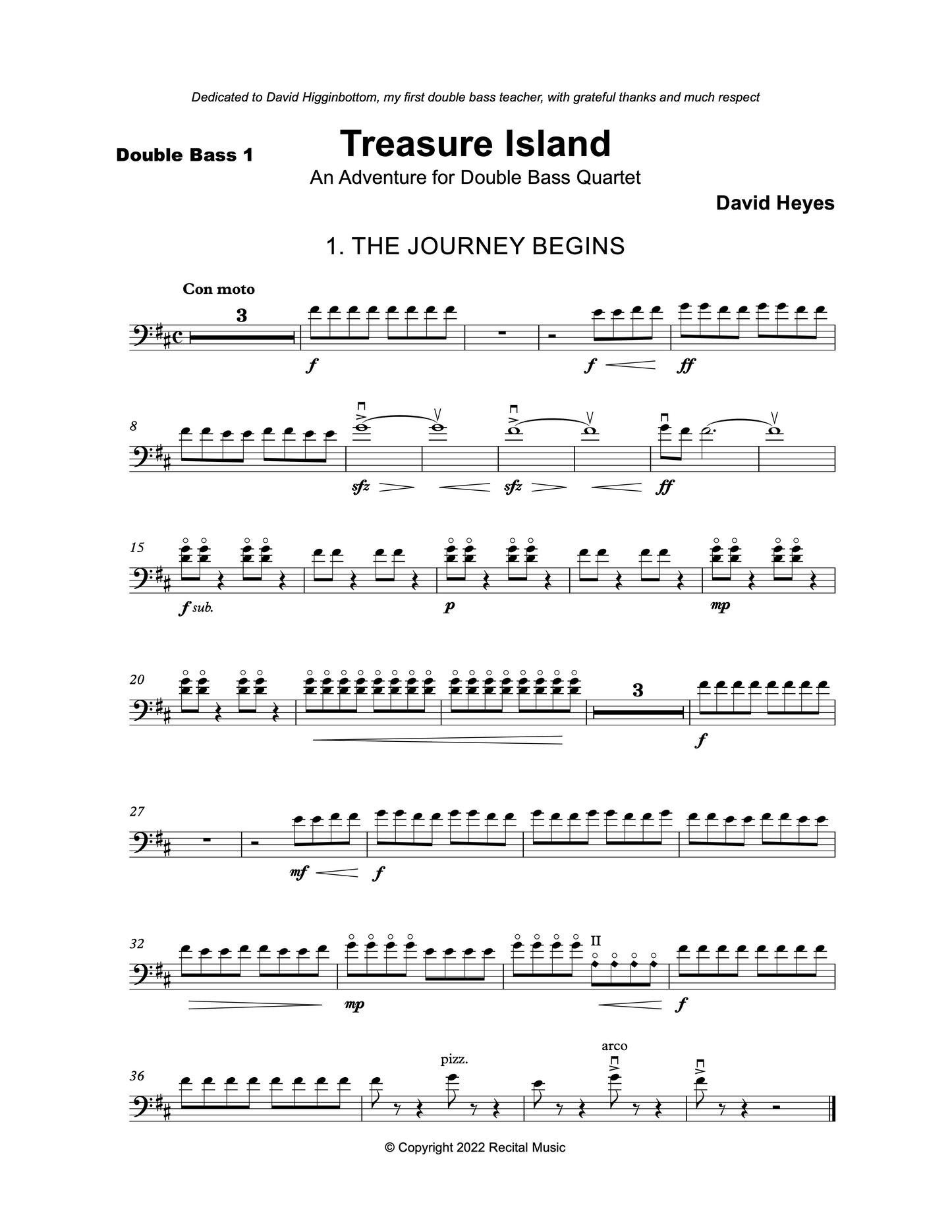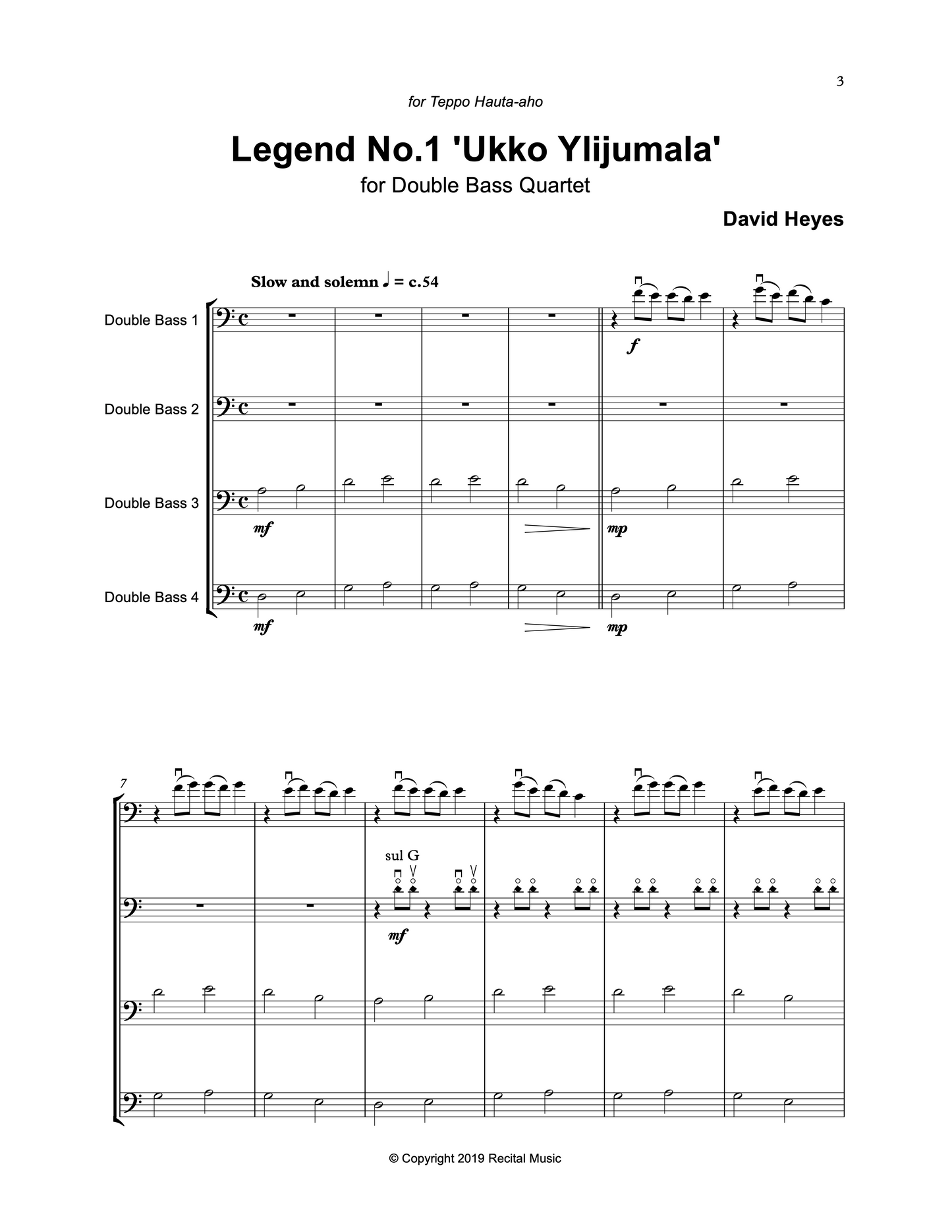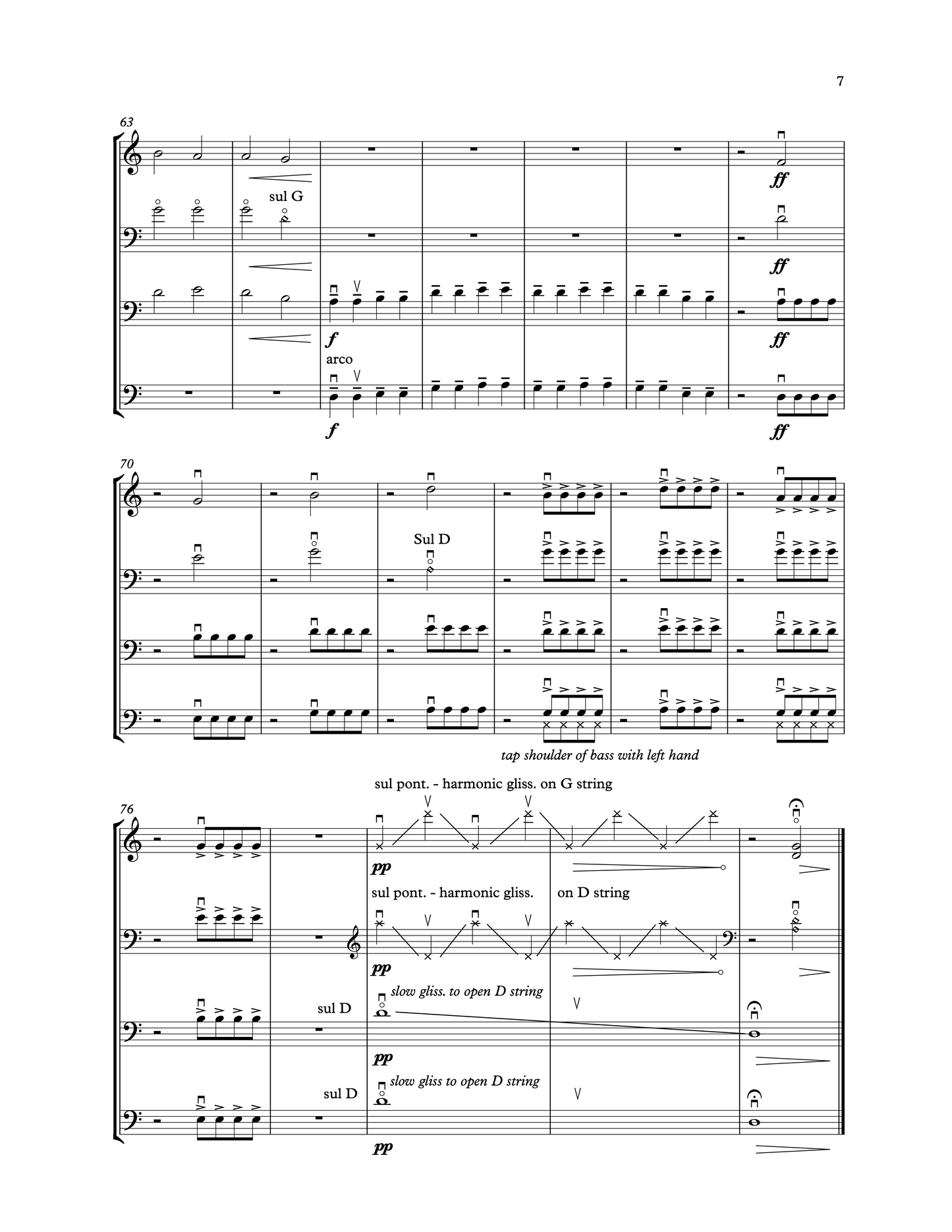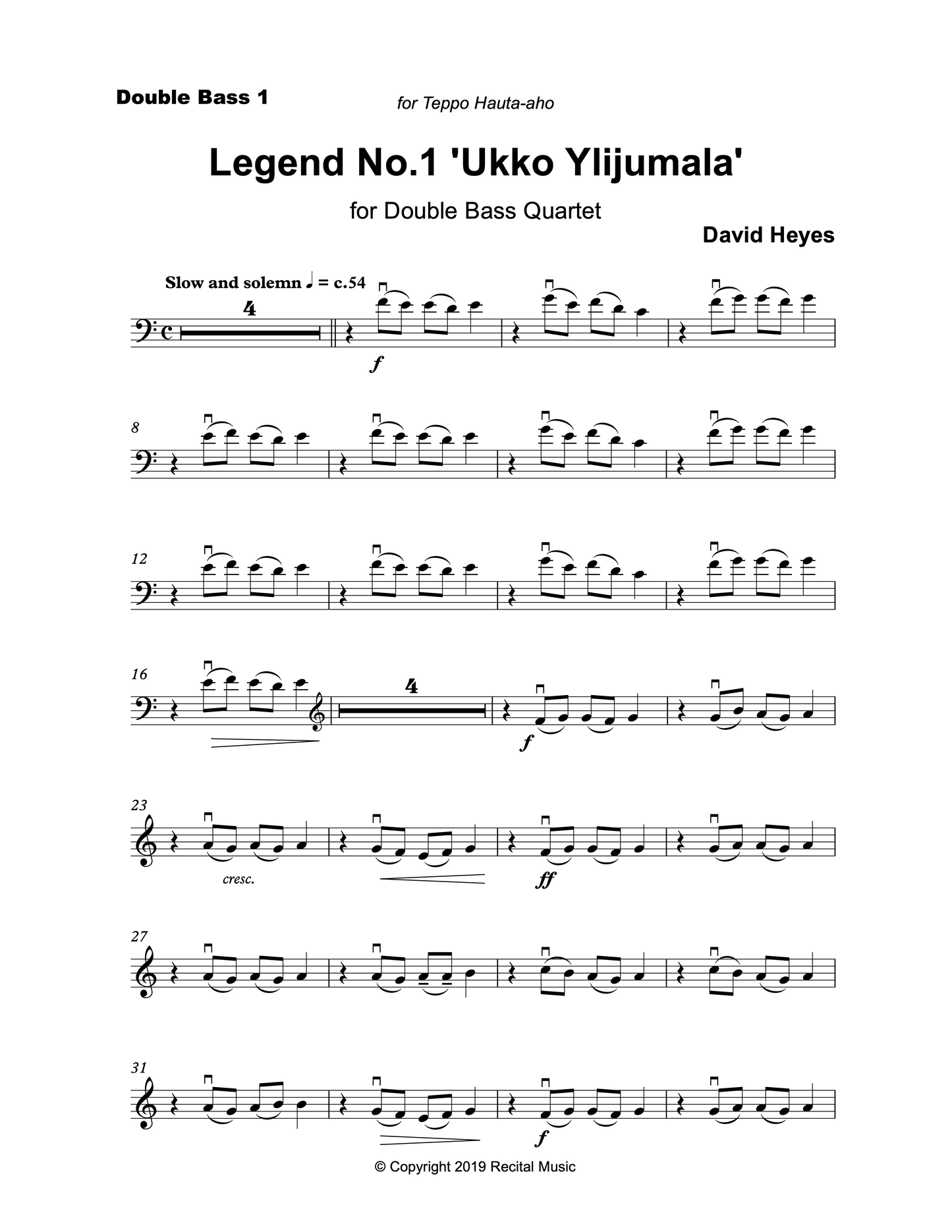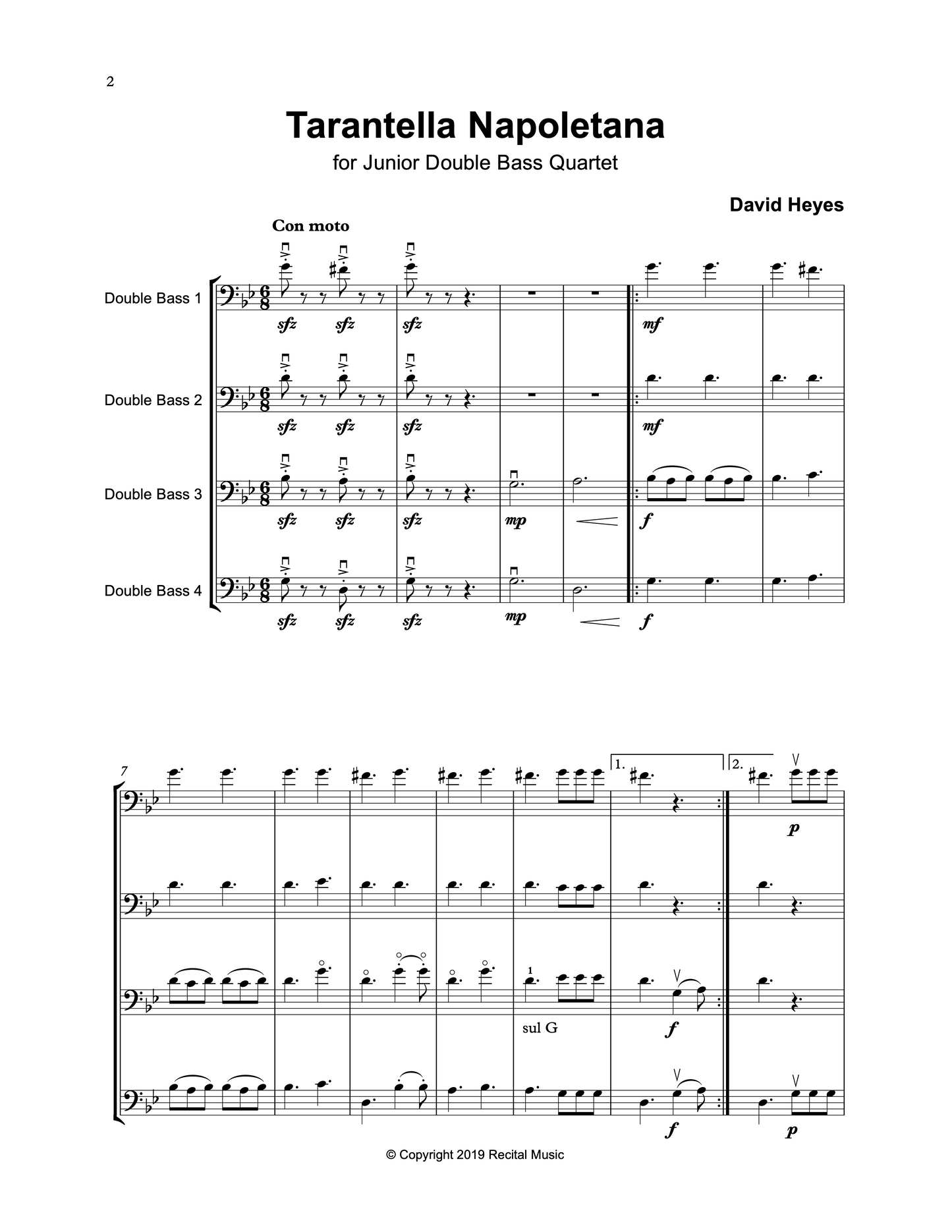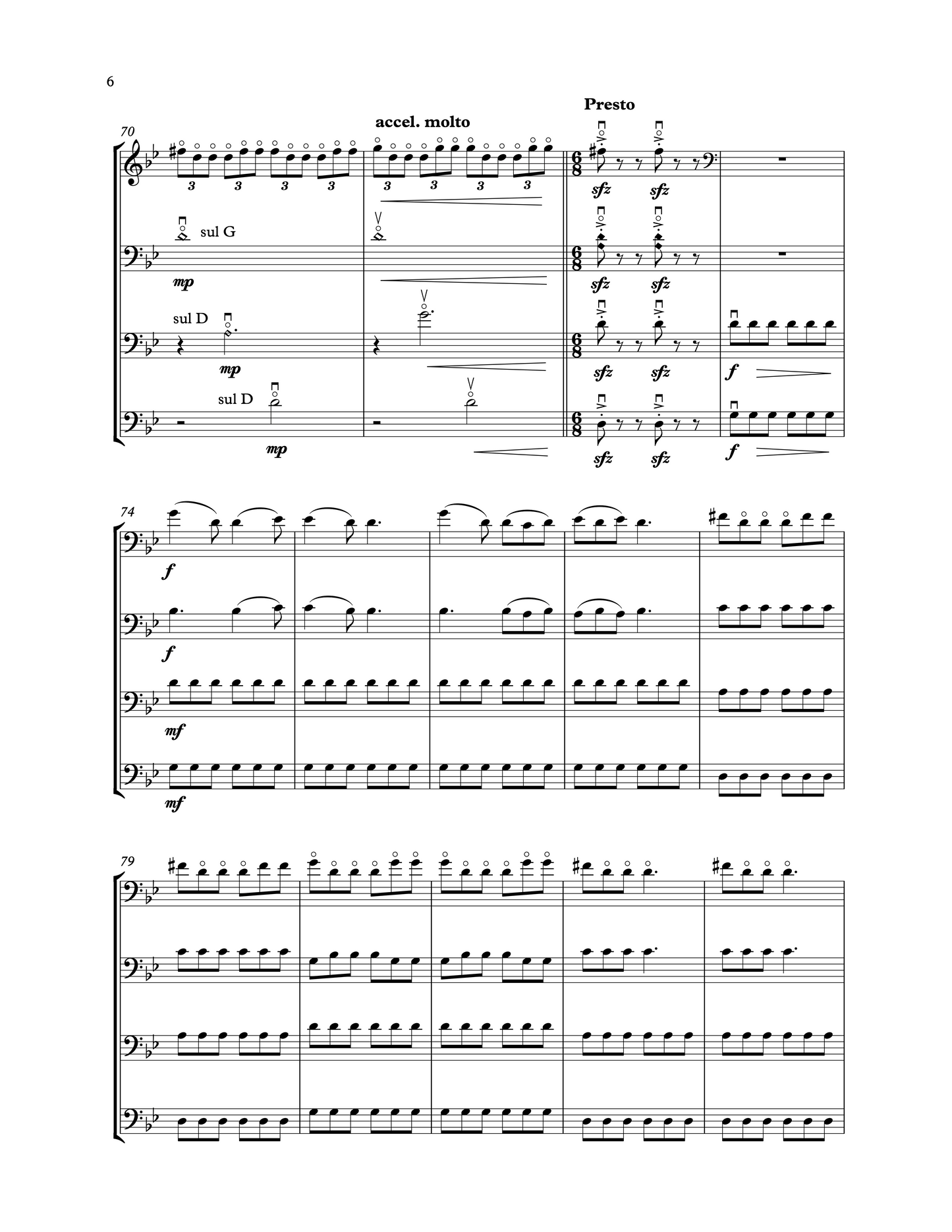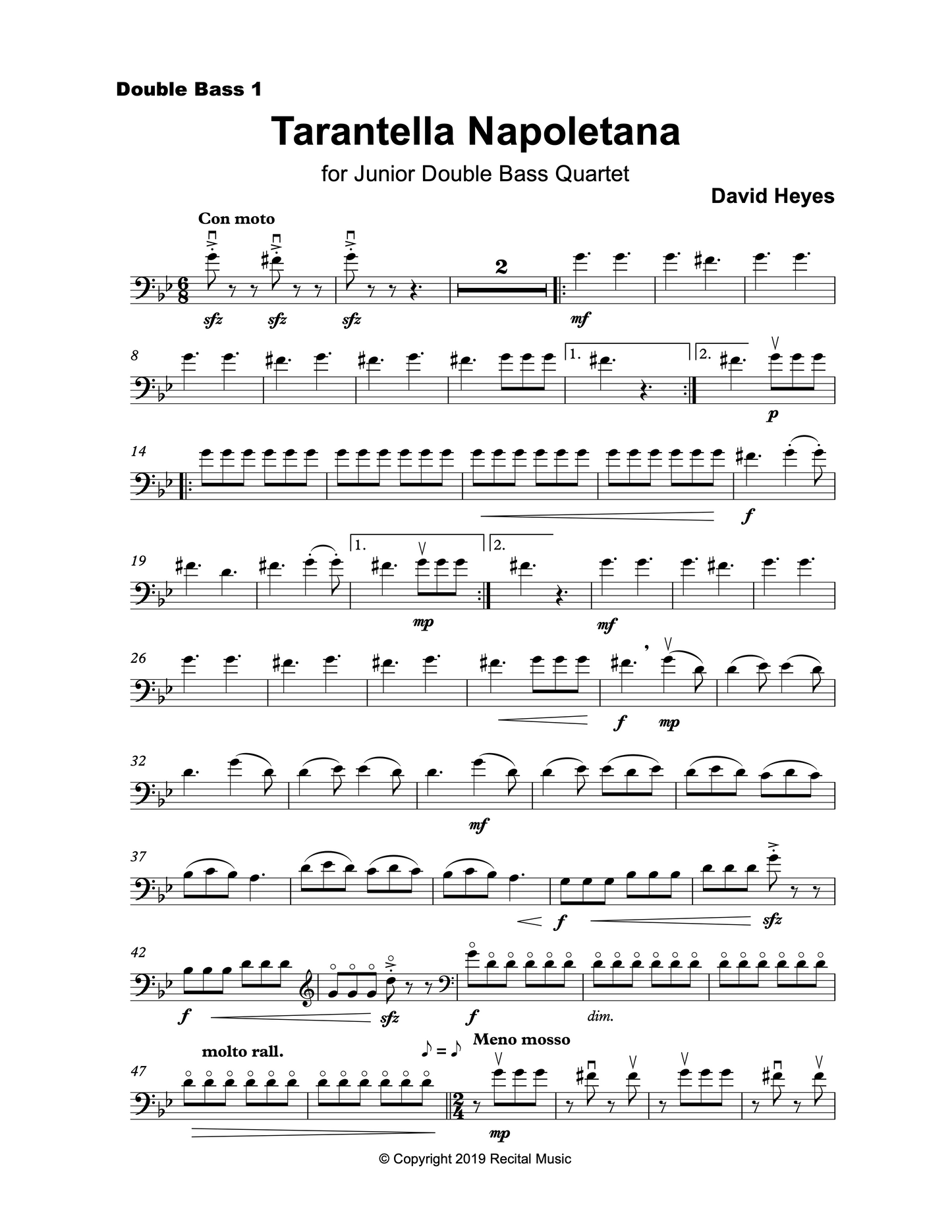David Heyes
David Heyes: The Legends Collection for Beginner Bass Quartet
David Heyes: The Legends Collection for Beginner Bass Quartet
Couldn't load pickup availability
About the Collection
This engaging collection of double bass quartets written by David Heyes is designed for beginner and progressing bass students. Each work draws inspiration from a story, landmark, or legend, ranging from the lively Carousel and adventurous Treasure Island to the cultural colors of Slavonic Dances, the majestic Great Wall of China, and the mythic Ukko Ylijumala. With approachable writing and vivid imagery, these quartets provide both technical development and imaginative exploration, making them ideal for ensemble learning and performance.
Included in the Collection:
1. The Carousel
The Carousel was composed for junior double bass quartet or ensemble and only uses 1st and 4th positions, alongside G harmonic and two notes in 3rd position for bass 1. Each part has been carefully written for a specific ability level offering a range of musical and technical challenges for each bassist and the work is playable by quartet or larger forces.
2. The Great Wall of China
The Great Wall of China is ideal for the beginner/intermediate double bass quartet. In one movement and lasting around three minutes, it only uses 1st and 4th positions employing a number of exciting and engaging playing techniques including arco, pizzicato, harmonics, sul ponticello, percussion, col legno and Bartók pizzicato.
3. Slavonic Dance No. 1
Slavonic Dance No. 1 a fun, lively and rhythmic piece with plenty of action and energy to keep everyone happy, written for the junior-intermediate double bass quartet or ensemble. The keys of G minor/major, alongside changes of tempo and mood with melodic interest shared between the players, creates a piece which has an educational aspect but also an audience and player appeal. Slavonic Dance No.1 is colorful and energetic, lyrical and evocative, offering effective musical and technical challenges and an ideal final concert work. It remains in bass clef throughout.
4. Slavonic Dance No. 2: Dumka
Slavonic Dance No.2: Dumka remains in bass clef and is aimed at the progressing young bass quartet, also playable by larger forces. The music is generally slow moving and elegant, emphasizing the lyrical and sonorous qualities of the double bass. Each part remaining in its own register, with bass 4 only playing in 1st position, and the melodic material is shared between the four players.
5. Treasure Island
Treasure Island is a five-movement work for the progressing young double bass quartet or ensemble. It remains in bass clef throughout, bass 4 plays only in first position, and a number of performance effects such as sul ponticello, Bartók pizz., harmonics and ‘seagull’ are used to add character and variety.
Treasure Island can be played by quartet or massed forces and an optional narration can be spoken before each movement.
6. Legend No. 1: 'Ukko Ylijumala'
Ukko is the God of the sky, weather, harvest and thunder in Finnish mythology. In folk poems and prayers, he is also given the epithet Ylijumala, which means Supreme God, probably because of his status as the most highly regarded God and his traditional domain is in the heavens.
This quartet was composed for younger students for a concert to celebrate the music of the legendary Finnish bassist-composer, Teppo Hauta-aho to whom the quartet is dedicated.
7. Tarantella Napoletana
Tarantella Napoletana was composed for younger students to play in 'Bottesini Bravura!' The concert celebrated the music of Giovanni Bottesini (1821-1889) and this quartet was composed in an Italianate style and tailored to suit a specific ability level. The music is fast and lively, with a lyrical middle section and a short cadenza for bass 1 accompanied by a tremolando chord, which leads into an exciting and vibrant finale.
Tarantella Napoletana is not difficult to rehearse and is a fun and exciting piece in performance. It sounds far more difficult than it really is.
About David Heyes
David Heyes (b.1960) studied double bass with Laurence Gray and Bronwen Naish, later at the Royal College of Music in London, and completed his post-graduate studies in Prague with František Pošta (Principal Bass, Czech Philharmonic Orchestra). He has given recitals and masterclasses in 20 countries over the past few years and has been a juror at a number of international competitions, three times as chairman.
David's collaborative work gained him a prestigious award from the David Walter Charitable Trust of New York for his pioneering activities as a soloist, teacher, publisher, and commissioner of new music for double bass and he works with composers throughout the world to expand the double bass repertoire by commissioning new music and by rediscovering forgotten ones. Since 1983 more than 750 works have been written for him, music from one to twenty basses and from beginner to virtuoso, and he has premiered ten contemporary concertos with orchestra.
David began to compose in 2013 and has had music performed and recorded in 32 countries across five continents and is proud to be a D'Addario Performing Artist.
